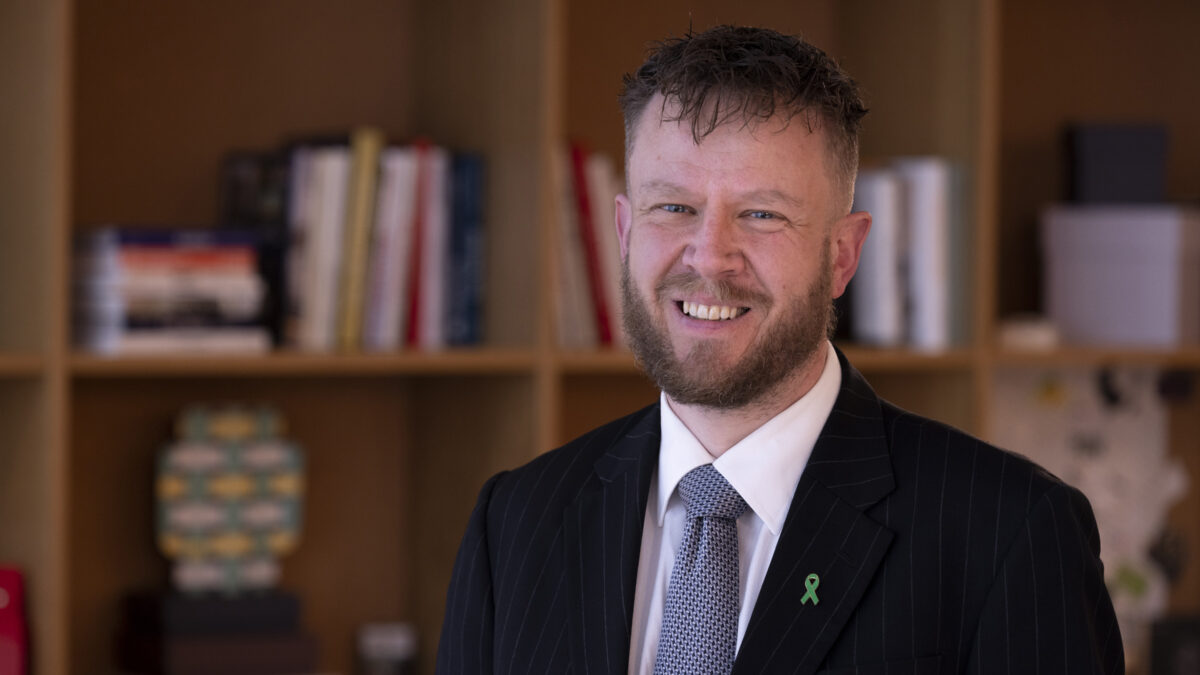National Eye Health Week is the “perfect time” for NHS Scotland staff to set their sights on fresh ophthalmic innovation, according to a health innovation body.
InnoScot Health says the week, from 18 to 24 September, is a good time for healthcare professionals to come forward with proposals for forward-thinking eyecare solutions’.
It will focus on the importance of good eye health and regular eye tests for all under a theme of ‘Vision Matters’ – and organisers are urging everyone in optics to get behind the campaign and help spread the word.
They say it is “the biggest and most effective independent public eye health campaign in the UK,” sharing important eye care advice with tens of millions of people every year.
InnoScot Health insists NHS Scotland’s workforce can be instrumental in spreading the NEHW message further but can also make a vital contribution to how the health service mitigates and adapts to heightened ophthalmic pressures through targeted innovation.
Head of Innovation at InnoScot Health, Robert Rea said: “National Eye Health Week is an opportunity to underline a shared vision for high-quality eyecare and better patient outcomes.
“We absolutely agree that ‘vision matters’ and believe NHS Scotland’s expert ophthalmologists, alongside those in support roles, are best placed to identify where unmet medical needs and bottlenecks in clinical ophthalmology lie.
“They know where innovative thinking can prove most effective in both the short and long-term but may find the prospect daunting amid day to day demands on their time and being uncertain of where to begin.
“InnoScot Health could therefore be the right collaborative partner to help them take forward their great ophthalmic idea at an opportune time by offering its expertise.
“Indeed, improvements are being made all the time with ophthalmology undoubtedly considered a rapidly evolving surgical specialty. There is much to be optimistic about.”
New ophthalmic facilities continue to be introduced across Scotland, inspiring innovative approaches – but existing facilities can be just as much of a fertile ground for encouraging new, more efficient ways of working.
In April this year, ophthalmologists based at Raigmore Hospital in Inverness moved into the new, purpose-built National Treatment Centre – Highland (NTC-H).
The NTC-H building hosts the entire Eye Care Service and additional operating capacity for Ophthalmology Services. There are three operating theatres for Ophthalmology allowing for high volume cataract surgery and management of ocular conditions, with an emphasis on new imaging technology allowing for remote and virtual working.
Last year, NHS Tayside’s ophthalmology service was able to double the number of cataract surgical procedures that could be carried out daily thanks to ground-breaking ideation.
The improvements by the ophthalmology team at Ninewells Hospital have included the ability to carry out simultaneous bilateral surgery on patients with cataracts in both eyes.
The team also sped up its theatre model by introducing a double nursing team working on a ‘tag team’ basis to support the surgeon, in turn cutting down time in between patients and allowing the completion of between 24 to 32 procedures in a single day.
Collectively, this has turned Tayside into the best performing health board in Scotland for cataract surgery.
Rea added: “So far, there have been promising ideas submitted in response to our innovation call on a range of medical devices – fresh approaches to digital therapy for eye conditions, new ways of improving technology for retinal disease diagnosis, and better management of patients undergoing cataract surgery.
“Identifying opportunities for accelerated ophthalmic solutions that can improve the lives of both NHS Scotland patients and clinicians is incredibly important.
“The incredibly powerful effect which innovation can have is not to be underestimated.”




